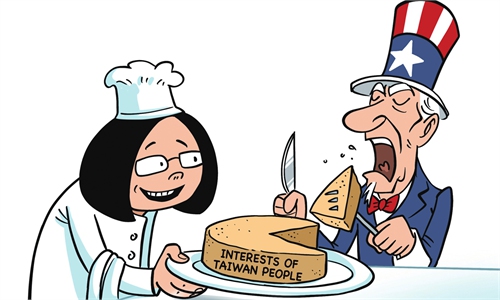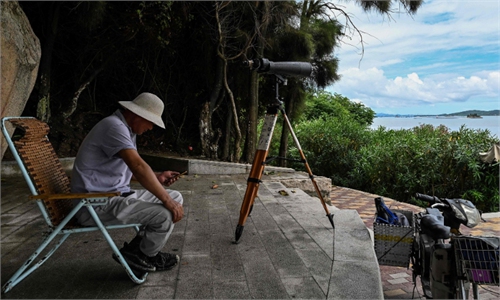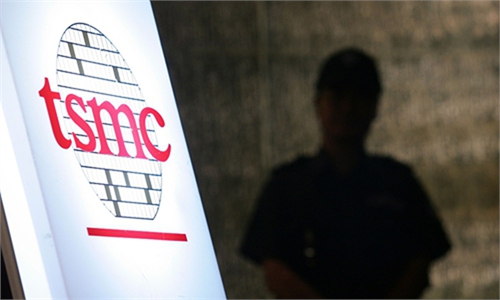IN-DEPTH / IN-DEPTH
‘Taiwan independence’ secessionist forces will never succeed; US uses Taiwan as chess piece to be abandoned at any time: ex-KMT chair Hung Hsiu-chu
Breaking illusion
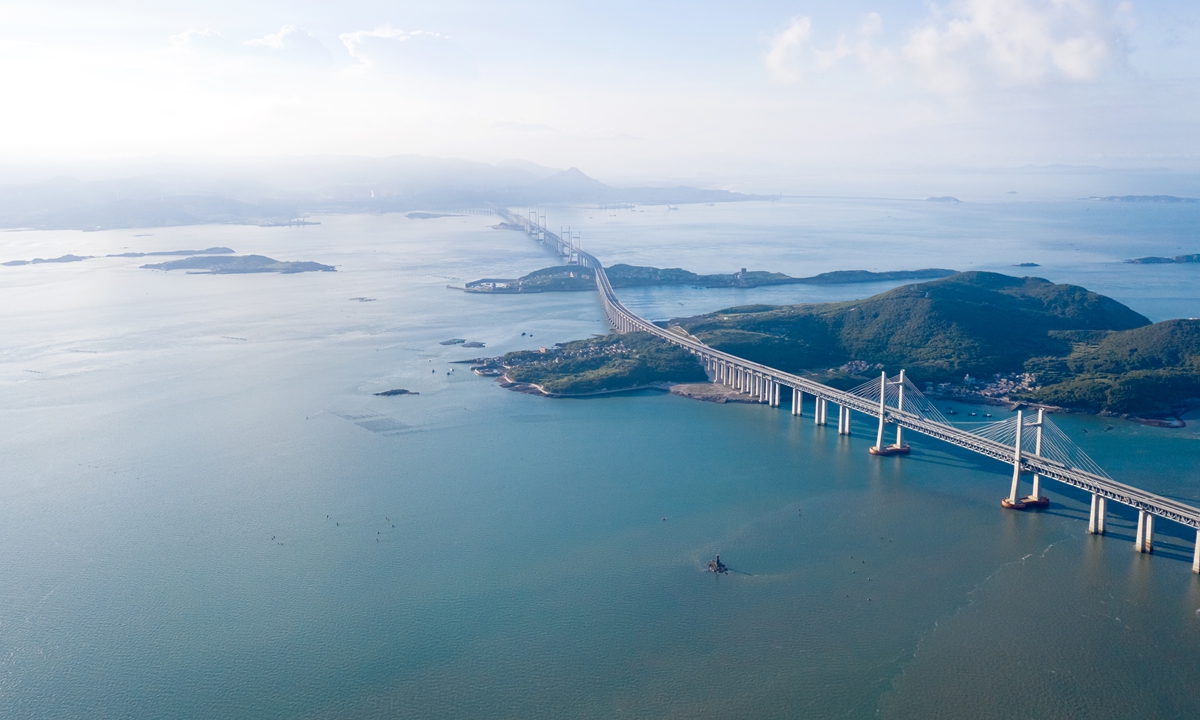
A view of Pingtan Strait Road-rail Bridge. Photo: VCG
Editor's Note:Following US House Speaker Nancy Pelosi's provocative visit to Taiwan, tension across the Straits continues to escalate. Amid a series of countermeasures and comprehensive efforts in response to US provocations and collusion between secessionist DPP authority on the island and the US, Chinese central authorities released a white paper "The Taiwan Question and China's Reunification in the New Era," reinforcing the country's firm stance on the Taiwan question. Can the US be relied upon for the interests of the Taiwan island? As US politicians continued with provocative trips to the Taiwan island that further heightened cross-Straits tensions, Hung Hsiu-chu, former chairperson of the Kuomintang (KMT), the major opposition party within the island, said in a recent exclusive interview with the Global Times that Taiwan could become an abandoned chess piece by the US at any time and "Taiwan independence" secessionist forces could never succeed.
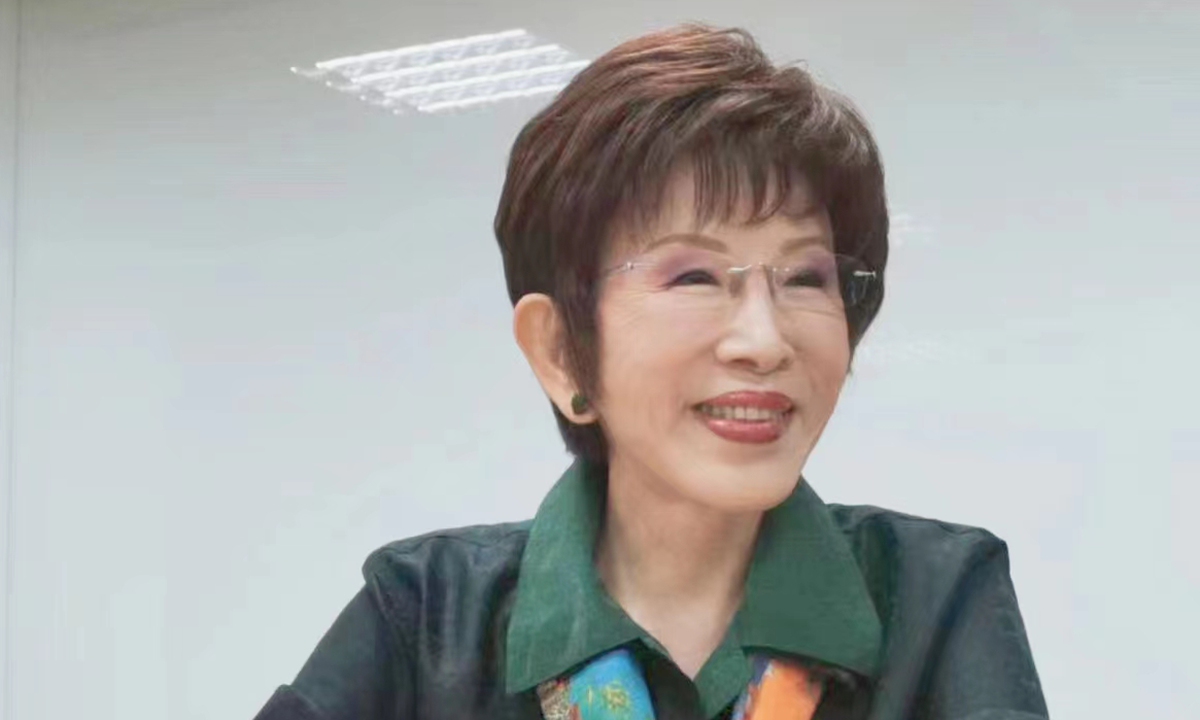
Hung Hsiu-chu Photo: Courtesy of Hung
GT: If the separatist Democratic Progressive Party (DPP) authorities continue to play the "anti-mainland" card by colluding with the US and the West and provoking further countermeasures by the mainland, what impact will it have on Taiwan?
Hung: Those who have been concerned about cross-Straits relations and military strategy are very worried that the situation is approaching the edge of quasi-war. The DPP disregards the well-being and safety of the people in Taiwan, and wants to exploit the residual value of Taiwan. As a result, a flock of American and Western congressmen and officials come to visit Taiwan region to put on political shows for their own political interests.
Moreover, with the increasing competing relationship between the Chinese mainland and the US, Taiwan will continue to be on the frontline of geopolitical wrestling and Taiwan could become an abandoned chess piece by the US at any time.
Many people in Taiwan haven't realized the seriousness of the crisis yet. First, most people did not see the DPP take corresponding measures; second, the DPP controls the media and brainwashes its supporters, giving many the illusion that the island will have foreign aid from the US and Japan.
However, ironically, many politicians advocating "Taiwan independence" are the first to run away when asked to join the military service. It is clear enough that their real purpose is to obtain political benefits.
GT: How do you view the newly released white paper "The Taiwan Question and China's Reunification in the New Era"? It seems that there are few coverages on the white paper in the island. What is the reason?
Hung: The white paper summarizes the position and policies of the Communist Party of China (CPC) and the Chinese government on Taiwan question, which has significance on cross-Straits relations. First, it refuted the DPP's "two-states" theory and rebutted the US ploy of hollowing out the "one-China" principle. The white paper also stresses that the basic principles of peaceful reunification and "one country, two systems" should be upheld.
It stressed that the mainland "will work with the greatest sincerity and exert utmost efforts to achieve peaceful reunification," which signifies that the mainland still views "peaceful reunification" as its basic policy.
Unfortunately, Taiwan's media, which is mostly controlled by the DPP, has not reported much about the white paper. The blockage of information will only lead people to misunderstand, misjudge the situation, thus contributing to the upward spiral of hostility across the Straits.
Over the years, I have always insisted on the peaceful reunification because we believe that the Chinese people have the wisdom to solve the country's internal affairs in a peaceful and rational way.
However, since the DPP led by Tsai Ing-wen came to power in 2016, the contact and exchanges across the Straits have been in decline, leading to rising confrontation and hostility.
GT: Can the DPP authorities in the island trust the US to intervene if military conflicts break out in the Taiwan Straits?
Hung: We have always believed that if war breaks out in the Taiwan Straits, the US can never be relied on to defend the island. It is clear from Pelosi's visit to Taiwan.
In addition, during the PLA's military exercises, the USS Ronald Reagan aircraft carrier never came close to Taiwan, which also shows that the US is trying to avoid military conflict in the Taiwan Straits.
From the withdrawal of US troops from Afghanistan last year to the Russia-Ukraine military conflict this year, many people in Taiwan have seen through the true nature of the selfishness of the US and the West, and how they use "proxy wars" to contain their imaginary enemies in the international arena.
We believe that more people in Taiwan will gradually wake up, and see through the true nature behind the DPP's reliance on the US for seeking secession.
GT: You always emphasize that cross-Straits integrated development is the general trend, but why are voices promoting the reunification and cross-Straits friendship suppressed in the island of Taiwan at present?
Hung: The weakening voices for "reunification" within the Taiwan island are due to many factors. First, education reforms, which began under former separatist leader of Taiwan Lee Teng-hui, have left many young people to deviate from the right sense of national identity.
When former leader of Taiwan island Ma Ying-jeou came into office, KMT did not seize the opportunity to revise the incorrect history textbook syllabus. After Tsai Ing-wen took power in 2016, the DPP authorities further played down the Chinese history and tagged the island's history as the "national history." Therefore, most young people in Taiwan are quite unfamiliar with the contemporary history of China, with a weak self identification.
However, I firmly believe that the great rejuvenation of the Chinese nation and the integrated development across the Straits is the general trend.
People across the Straits share the common destiny, and it is impossible for "Taiwan independence" secessionist forces to succeed.
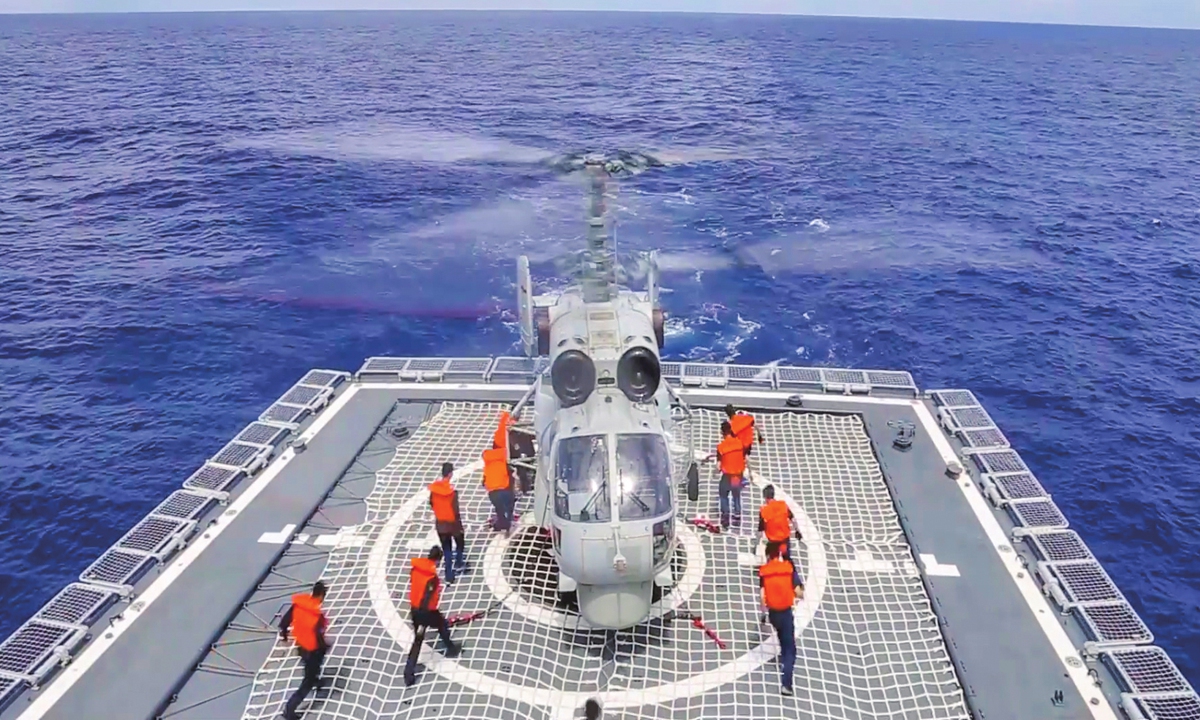
A Ka-28 anti-submarine helicopter of the Chinese People's Liberation Army (PLA) on the flight deck of the Type 052C guided missile destroyer Changchun on August 8, 2022. The PLA Eastern Theater Command continued realistic combat-oriented joint exercises in sea and air space around the island of Taiwan on August 8. Photo: Courtesy of PLA Eastern Theater Command's Sina Weibo account
GT: What is the significance of a series of policies and measures rolled out by the Chinese mainland to benefit the compatriots and businesses in Taiwan over the years?Hung: Since the reform and opening-up of the Chinese mainland, many enterprises in Taiwan have invested in the mainland and made contributions to the rapid economic growth of the mainland in the past 30 years.
We sincerely hope that various measures designed to benefit Taiwan compatriots and businesses will continue, expand, and deepen, which is also a powerful tool to break the illusion of "Taiwan independence" separatist forces.
However, we must understand that we cannot simply ask for the mainland's favorable policies while showing no sincerity in resolving the political dispute across the Straits. That will hurt our compatriots on the Chinese mainland. DPP's vicious rhetoric against the mainland will further aggravate tension and dim the prospect of peaceful reunification.

